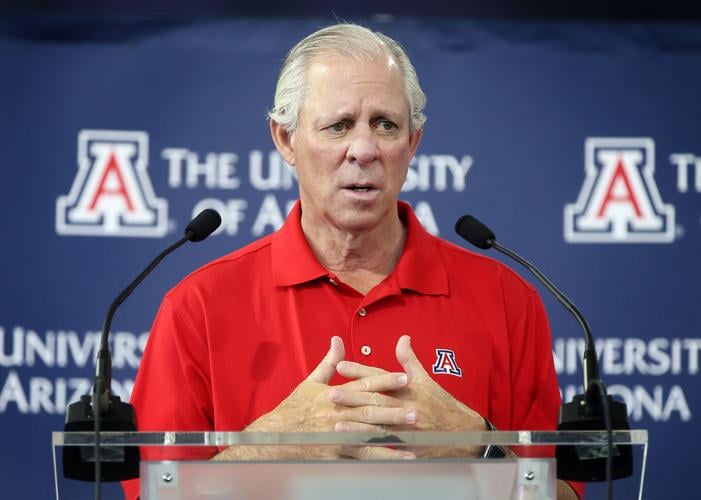A University of Arizona professor received a death threat, members of the Faculty Senate were told Monday.
“In the past week one of our outspoken senators received a death threat via text messages,” Lucy Ziurys, a professor and faculty senator, announced at the Faculty Senate meeting. “These text messages were very real, very scary and showed someone with a deranged mind.”
UA President Robert Robbins was at the meeting and told the senators he had learned about the situation earlier in the day.
“I met with the faculty member in question and their family,” he said. “We are mobilizing, taking these threats very, very seriously.”
The specific contents of the messages as well as the identities of the professor and the offender weren’t disclosed to the public. Robbins said he was not able to share any more details about the case, but encouraged anyone who received any type of threat to report it immediately.
This revelation comes one week after a consulting firm released a report that said the UA’s campus safety protocols were hampered by systemic failures, including a breakdown in communication between administrative departments tasked with addressing safety concerns.
The report found that the failures colored an unresponsive environment Thomas Meixner — a hydrology professor who was shot and killed on campus in October, allegedly by a former student — and his colleagues attempted to work within to address repeated threats from the former student. The report found a lack of safety measures and ineffective investigations into threats made up to a year before Meixner was killed.
Robbins vowed last week to work closely with faculty and other members of the campus community to rebuild trust after Meixner’s slaying.
University of Arizona President Robert C. Robbins gave a campus safety update on March 27, following the release of a report prepared by the independent PAX Group. Video by Pascal Albright, Arizona Daily Star
The death threat disclosed Monday has only elevated the faculty’s concerns.
“I want to make sure this doesn’t have a chilling effect on our speech, including on the person who received the death threat, who probably would be considered — as I am — uncivil at times,” said Marlys Witte, a faculty member in the college of medicine and an at-large senator.
“We should remember that civil rights were not always civil,” she said. “We should always speak carefully and accurately and try not make any ad-hominem arguments. But, certain individuals may need to be held responsible for certain things.”
Witte said many of her colleagues — in medicine and other fields — have received death threats over the years.
“They’re very scary, but one has to move deliberately,” she said. “In this instance, (the death threat) was promptly reported to the Tucson Police Department and I think that’s very important.”
Robbins emphasized the importance of reporting safety concerns as they happen.
“If you receive threats, I hope people would feel comfortable contacting (the University of Arizona Police Department), but I understand if you don’t,” Robbins said, before reciting his personal phone number twice. “If you’ve got a problem and you don’t think you’re getting resolution to that problem, text me or call me. If I can’t help solve it I will try and find some resolution.”
Robbins said the university wants to hear about all instances of intimidation or retaliation on campus, and it doesn’t have to be as serious as a death threat. “It can be more subtle and indirect — slow-walking grant proposals, not funding things, not getting promotions,” he said. “There’s a whole list of things that fall into retaliation.”
In the case of the death threat sent last week, Robbins said he’s glad the victim reached out to him when they did but also called police.
“We’ve moved into alerting other law enforcement agencies including federal and regional agencies,” he said. “These are very, very serious threats. I take them seriously. I think everyone else takes them seriously. And I think we’ve seen what happens when we don’t take them seriously.”
Robbins, responding to the consultant’s report, had said last week, “As this report reveals, there were systemic issues across our university that should have been identified and corrected. I’m angry at myself that I did not do more to prevent this tragedy. I’m determined to honor Tom Meixner’s legacy by making any and all necessary changes to keep our campus safer.”
Meixner’s family filed a notice with the Arizona Board of Regents in March seeking $9 million over the university’s handling of the Meixner case. The board has 60 days to respond to the claim, a precursor to a lawsuit.

UA President Robert Robbins






